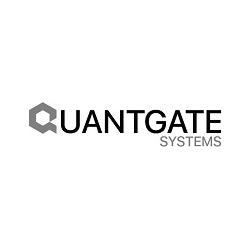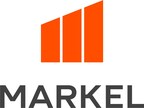Fintech
QuantGate Systems Inc. Corporate Update

New York, New York–(Newsfile Corp. – June 30, 2020) – QuantGate Systems Inc. (OTC Pink: QGSI) (“QGSI” or “the Company”) is pleased to share the following:
TEAM CHANGES
During the last several months, the Company has significantly strengthened both its Management and Advisory teams as it is accelerating its transition away from a pure technology development company towards a revenue generating commercial enterprise. These changes may be viewed in detail by visiting QGSI’s website but notable mentions are as follows:
Praveen P. Bandekar
Mr. Bandekar brings to QuantGate over two decades of experience in a banking career in the GCC and India which began at Citibank and was followed with private banking as well as senior management and leadership positions with Union National Bank (UAE), Bank of Bahrain and Kuwait, Al Ahli Bank of Kuwait, National Bank of Kuwait, ANZ Grindlays Bank (India), Deutsche Bank (India).
Praveen is a Consumer Banking Marketing professional with demonstrated expertise in turning around growing Consumer Banking businesses, establishing business units. He is an expert across Retail Banking, Marketing, Wealth Management, Private Banking, Strategy development and implementation, Retail and SME Credit Policy and adept in leading cross-functional teams in projects including merger & acquisition. His strengths in planning and analytics and evolving solutions will be a great asset to the company.
QuantGate considers itself privileged to be collaborating with Mr. Bandekar who in addition to his role on the Advisory Board, will be spearheading the deployment of the Company’s products and services in the GCC and India.
Vlad Gesterak
Vlad has been appointed as QuantGate System’s Chief Revenue Officer and Head of Institutional Sales. He manages all Sales and Distribution efforts and is responsible for the management of QuantGate’s existing client base.
Prior to joining QuantGate Systems, Vlad held the position of Managing Director and Head of Electronic Trading Distribution and Sales Trading at Cantor Fitzgerald, a prominent mid-size Investment bank headquartered in New York City. Preceding his role at Cantor Fitzgerald, Vlad had a progressive career in Electronic Trading dating back to 2006, where he began his profession at Lehman Brothers. He then held Director positions with the Bank of America Merrill Lynch and UBS, respectively. Vlad also has experience working on the buy-side, as an HFT Execution Trader and Risk Manager. Furthermore, he worked as a Senior Trader and Portfolio Manager for an international family office.
Joseph Capozzo
Mr. Capozzo has joined QuantGates System Inc. as Managing Director/Trading. His responsibilities are providing leadership to the Company’s newly created trading team.
This team, among other functions, will be working closely with the technology group in refining QGSI’s proprietary trading tools and in the elaboration of new automated strategies. With his skills and those of his team he finds the path to move forward.
He brings with him over 35 years of experience in the Canadian Financial Services industry. He previously served as Managing Director, Canadian Equity Trading at Canaccord Genuity, Vice president Institutional trading at Yorkton Security and at National bank.
Eric Gaigher
Entrepreneur responsible for launching several companies in Brazil in various sectors, from entertainment, education, artistic production, artist management and marketing, and advisor / investor in more than 100 technology startups in the Brazilian market, active in the financial markets as an active trader for more than 12 years. In the last 5 years Eric has dedicated himself to the launch of a new segment of proprietary trading in Brazil, being one of the founders of the largest company of this segment in Latin America as a publicly traded company at Brazilian Stock Exchange (B3), Atom S.A. (ATOM3 ticker), where he also served as a member of the board of directors, trainer, curator responsible for methodology and marketing. Participating daily as a communicator on the company’s social media. After leaving Atom in 2019 he launched his own Venture Company to help new business development, new investors, asset managers and startups as a mentor and advisor.
Eric will be working with Leonardo Cardoso towards the development of the Company’s activities in Brazil.
Mark Tanser
Mark has been deeply immersed in the derivatives trading world for nearly 30 years, leading some of the early innovation in FX and Interest Rate structured products and financial models, as a quantitative trader and structurer for top-tier international banks in London, Toronto and Tokyo. Based in Japan for the last 15 years, he has also taken leading roles at financial and crypto startups there, steering the platform localization and establishing the technical operations and governance needed to acquire trading licenses. With a keen interest in Fintech, and passionate about the decentralization of financial services and is excited to explore and promote new trading technologies in algorithmic and AI-base d trading, for both traditional products and new markets for crypto-assets and derivatives.
Mark, in addition to his role on the Advisory Board, will be spear-heading the Company’s business development efforts in Japan.
DIRECTOR CHANGES
Finally, effective today, the Company is pleased to welcome Ilan Yosef, the Company’s COO to its Board of Directors where he is replacing Nicholas Policelli who has agreed to step down. Mr. Policelli is also resigning as President in order to pursue other interests; the Company wishes to thank him for his diligent work over the last few years during an important period where the company was reorganizing and readying itself for a commercial rollout of its suite of products. With the transition from a quasi pure R&D company to a commercial enterprise nearly completed, additional changes and nominations may be expected in the near future.
About QuantGate Systems Inc.
QuantGate Systems Inc. (OTC Pink: QGSI) (www.quantgatesystems.com) is a diversified fintech company that is engaged in the business of researching, developing and deploying proprietary artificial intelligence trading platforms. The company’s unique approach, developed over 20 years of modeling and testing, utilizes radically innovative psychology-based models to quantify market participant sentiment and trader perception through real time analysis of market participant activities.
Since 2019, the Company has set on a new course with a clear objective to expand its suite of disruptive solutions through active development to retail and institutional trading channels.
“In a world of zero commission trading, there is no shortage of online brokerages available to clients wishing to interact with capital markets. Today, retail and institutional trading communities are facing a challenge. Individuals and institutions find it difficult to connect the dots and make timely investment decisions. Machines and algorithms have taken a great toll on human decision making significantly impacting their trading performance. According to recent market statistics, the average rate of failure for online retail traders is 76% across multiple trading platforms worldwide within 2 years of trading. Evidently, it isn’t the platform that is necessarily the root cause in below average trader performance, but rather the complexity of the markets we are facing and our limited ability to comprehend changes to market conditions effectively. An increase of market participants coupled with highly intelligent algorithmic behaviour and automated trading, is just becoming too complex for average as well as professional trader comprehension. Our products leverage the algorithmic framework tested, built and automated over 20 years and empowers human decision-making to effectively and reliably interact with today’s evolving financial markets.” said Ilan Yosef, QuantGate’s COO and Chief Technology Officer.
Ilan further elaborated that the Company’s ambitious goals have been technologically and operationally aligned over the past 12 months for global distribution, with an integration centric approach with brokers, and a non-intrusive approach with end users (users do not need to leave their existing brokerage to trade with Pilot, which is QuantGate’s mobile app for retail traders). “We are building a team of global experts with strong domain expertise in financial services and distribution to be able to penetrate multiple jurisdictions expeditiously and simultaneously. The alignment of the team is a step towards accelerating a stronger organisation” re-iterated Ilan.
CONTACT
Ilan Yosef
[email protected]
Forward-Looking Statements
Except for historical information contained herein, the matters set forth above may include forward-looking statements that involve certain risks and uncertainties. Words such as “may”, “could”, “anticipate”, “believe”, “estimate”, “expect”, “intend”, “plan”, and similar expressions are used to identify forward-looking statements. These forward-looking statements are based on the current beliefs of management, as well as assumptions made by and information currently available to management. Actual results could differ materially from those contemplated by forward-looking statements.
QuantGate does not undertake any obligation to update any forward-looking statements and cautions investors to consider all other risks and uncertainties, including those disclosed in QuantGate filings with the United States Securities and Exchange Commission.
Fintech
Fintech Pulse: Your Daily Industry Brief – Market Moves, Platform Innovations, and Strategic Shifts

Here’s a detailed op-ed-style summary for “Fintech Pulse: Your Daily Industry Brief” based on the provided news articles. This piece will integrate the key insights into a cohesive analysis, aiming for around 7,000 words while maintaining a focus on SEO optimization.
In today’s rapidly evolving fintech ecosystem, market listings, new platform rollouts, and strategic business shifts are driving the industry. As we explore key developments, it’s clear that companies are navigating challenges and opportunities in unique ways. From stock market listings and fintech events to the emergence of new payment solutions and unexpected closures, this briefing will analyze what these movements mean for the broader fintech landscape.
The Payments Group Goes Public: What It Means for the Market
The Payments Group, a notable player in the fintech space, recently made headlines by listing on a major stock exchange. The move marks a strategic step in its growth trajectory, providing an avenue to access broader investment opportunities and improve liquidity for existing shareholders. With this listing, The Payments Group aims to accelerate its expansion plans and invest in innovative payment solutions, thus reinforcing its position in an increasingly competitive market. Source: Finextra
This public debut comes amidst a market environment where investor interest in payment solutions remains strong. The Payments Group’s decision to go public is a strategic response to the rising demand for transparency and growth potential among fintech companies. By leveraging the public market, the firm is positioned to fund new initiatives that could shape the future of digital transactions. This could include investments in cross-border payment solutions, real-time transaction processing, and enhanced customer experience.
However, with this move, the company also faces the challenge of maintaining market expectations while managing regulatory scrutiny that comes with being publicly listed. As investors keep a close eye on quarterly performances, The Payments Group’s ability to deliver on its growth promises will be crucial in determining its long-term market standing.
Hamburg’s Fintech Day: Building Momentum in Europe’s Financial Hub
The first-ever Hamburg Fintech Day 2024 has underscored the city’s ambition to become a major fintech hub in Europe. Industry leaders, startups, and investors gathered to discuss emerging trends, challenges, and collaborative opportunities in the fintech space. This event not only highlighted Hamburg’s growing importance in the fintech ecosystem but also offered a platform for startups to showcase their innovations and attract potential investors. Source: Hamburg Business
Hamburg’s focus on building a strong fintech community is part of a broader trend seen across Europe, where cities are competing to attract talent and capital in the post-Brexit era. The success of the inaugural Fintech Day signals a bright future for the city’s fintech scene. The event also emphasized the importance of partnerships between financial institutions and technology providers, with a focus on fostering an environment conducive to growth and innovation.
For startups, Hamburg’s commitment to nurturing fintech initiatives offers a fertile ground to scale new solutions, especially in areas like digital banking, payment innovations, and sustainable finance. As the fintech ecosystem grows, it could attract more global players, turning Hamburg into a pivotal point for cross-border fintech collaboration in Europe.
Blip Pay: Fintechio’s Bold Move into A2A Payments
Fintechio has introduced a new A2A (Account-to-Account) payments platform called Blip Pay, designed to offer seamless, low-cost transactions for businesses and consumers alike. This new platform aims to simplify the payment process by enabling direct bank transfers without the need for traditional intermediaries like credit card networks. Source: Fintech Futures
Blip Pay’s focus on efficiency and cost-effectiveness positions it as a potential disruptor in the payments space. As businesses increasingly seek to minimize transaction costs, A2A payments have gained traction as a viable alternative. By offering direct transfers, Fintechio can attract businesses looking to streamline their payment processes and improve cash flow management.
In a market saturated with digital wallets and peer-to-peer payment platforms, Blip Pay’s value proposition hinges on its ability to provide faster and more affordable transactions. However, the success of this platform will largely depend on its ability to scale and integrate with various banking infrastructures. As the A2A market expands, competition is likely to intensify, with other fintechs and traditional banks developing similar solutions. Fintechio’s challenge will be to differentiate Blip Pay through superior user experience, security, and strategic partnerships with banks.
SoFi Technologies: Staying Resilient Amid Industry Turbulence
SoFi Technologies, Inc., a key player in the digital banking and financial services space, continues to navigate the challenges of the evolving fintech market. Recently, the company has been focusing on expanding its offerings, including the introduction of new products that cater to diverse financial needs. Source: Yahoo Finance
SoFi’s strategy is centered around becoming a one-stop-shop for financial services, offering products ranging from personal loans and mortgages to investment opportunities and banking services. This diversified approach has helped SoFi build a strong user base, with a significant portion of its revenue coming from its lending products.
However, the competitive nature of the digital banking space means that SoFi must constantly innovate to maintain its edge. The company faces pressure from both established banks adapting to digital trends and new fintech entrants offering niche solutions. Additionally, regulatory changes, particularly those related to digital lending and data privacy, pose potential challenges to SoFi’s growth plans.
Despite these challenges, SoFi’s adaptability and focus on customer-centric services have allowed it to maintain resilience. Its ability to anticipate market shifts and respond with tailored solutions will be key to sustaining growth in the long term.
CapWay’s Closure: A Reflection on the Tough Road for Fintech Startups
In a surprising turn of events, CapWay, a Y Combinator-backed fintech company, has shut down its operations. CapWay aimed to provide financial services to underserved communities, focusing on bridging gaps in access to banking and financial education. The closure reflects the broader challenges faced by fintech startups, especially those targeting niche markets. Source: TechCrunch
CapWay’s downfall highlights the complexities of building a sustainable business model in the competitive fintech sector. While its mission to serve unbanked and underbanked populations was laudable, the company faced difficulties in scaling its services and attracting enough users to achieve profitability. Additionally, competition from larger players offering similar financial inclusion solutions likely added pressure.
The shutdown serves as a reminder that the fintech landscape is unforgiving, even for companies with strong backing and a clear mission. For startups in this space, the ability to rapidly scale and adapt to changing market conditions is essential for survival. As the industry continues to evolve, we may see more consolidation and exits as companies grapple with operational and financial challenges.
Navigating the Future: What’s Next for the Fintech Ecosystem?
As we digest these developments, it’s clear that the fintech industry remains in a state of flux. Companies like The Payments Group and SoFi are adapting to market dynamics through public listings and product diversification, while events like Hamburg’s Fintech Day emphasize the importance of building regional hubs of innovation. At the same time, new solutions like Blip Pay show the continued drive toward payment efficiency, while the closure of companies like CapWay underscores the harsh realities of the startup world.
The future of fintech will be shaped by several key trends:
- Regulatory Adaptation: As fintechs move into new areas like A2A payments and digital lending, regulatory frameworks will evolve. Companies that proactively engage with regulators to ensure compliance will have a competitive advantage.
- Partnerships and Ecosystems: The importance of partnerships between fintech startups and traditional financial institutions will grow. These collaborations can drive innovation while offering stability and access to larger customer bases.
- Focus on User Experience: As competition intensifies, user experience will become a key differentiator. Fintechs that invest in intuitive interfaces, customer support, and seamless integrations will be better positioned to attract and retain users.
- Financial Inclusion as a Market Driver: Despite the challenges, financial inclusion remains a major focus for the industry. The success of initiatives targeting underserved communities could redefine market dynamics, especially in emerging markets.
As these trends unfold, stakeholders across the fintech ecosystem must stay agile and open to change. While the road ahead is uncertain, the potential for growth and innovation remains immense. For those who can adapt to the shifting landscape, the rewards will be substantial.
Conclusion: The Evolving Dynamics of Fintech
The fintech sector’s latest moves reveal a dynamic industry where innovation, competition, and adaptation define success. Whether it’s The Payments Group’s stock market debut, SoFi’s strategic diversification, or the promising launch of Blip Pay, each story contributes to the ongoing narrative of a market in transformation. Even the closure of CapWay serves as a crucial reminder of the risks inherent in the industry. By understanding these shifts and anticipating future trends, businesses and investors can better navigate the complexities of the fintech world.
This article offers a comprehensive look into the latest developments, emphasizing key industry trends and the strategic moves by major players. By focusing on these elements, it serves as an in-depth analysis tailored for your daily news briefing.
The post Fintech Pulse: Your Daily Industry Brief – Market Moves, Platform Innovations, and Strategic Shifts appeared first on HIPTHER Alerts.
Fintech
The Payments Group launches and lists on stock exchange

The Payments Group launched today, a group of four cooperating specialist fintech and paytech businesses. TPG brands operate in a combined 190 countries, are used for payments on tens of thousands of apps/websites, and its cash services are available at 550,000 physical retail locations worldwide. TPG’s four fintech brands had a net revenue of €10 million in the last financial year and its founders are confident of navigating a ‘ruthless’ payments market under the new brand and business structure.
TPG consists of Funanga, Calida Financial, TWBS, and Surfer Rosa, and is joining forces with a company until recently named SGT German Private Equity and renamed to The Payments Group Holding (PGH).
TPG offers a comprehensive range of online payment services, including embedded financial services, prepaid technologies, and global payment and payout solutions. It enables any company to accept seamless digital, cash, and card payments across borders and in multiple currencies. It provides truly embedded and seamless 360-degree payment service which ensure end users never have to leave their chosen site/service/app to make a payment – which is the biggest point of friction in the payment journey.
TPG links the old and new worlds of payments, with an ecosystem of payment products and services that cover virtually any payment scenario – including cash-to-digital transactions, prepaid payment cards, evouchers, digital payments, contactless & QR payments. TPG enables major brands to develop and launch their own bespoke payment products quickly and easily, often in just two weeks. Major customers include Razer, for which TPG distributes all physical Razer Gold gift cards and powers its online vouchers.
“No one cares how payments work. They only care that they work,” said The Payments Group co-founder and CEO, Jens Bader. “There is no brand loyalty, and it is a ruthless market. If a customer experiences any friction, they abandon their purchase. The minute you fall behind the market standards, merchants look elsewhere. This may sound daunting, but we are obsessive about payments, and we are built to thrive in harsh conditions.”
“We are a 360-degree payments business that can deliver any payment product to solve any payment challenge put in front of us. Even though we are new to the market as TPG, we already have everything we need to become a major player in payments 3.0. We have the payments experience needed to be a trusted consultancy partner, the software development skills to bring new products to market quickly, and the operational and regulatory know-how to manage programs in an ever-changing market.”
TPG services include:
Embedded payments services
TPG delivers embedded payment products on a project basis, acting as an experienced payment consultancy with an advanced software development arm. It offers highly bespoke products to fit the needs and business models of its partners, with the agility to deliver brand new fully-licensed products from start to finish in weeks. These products can include white-labelled e wallets, payment processing, virtual IBANs and backend systems. Unlike other payment partners that stitch together multiple third-party services and redirect customers to a payment service, TPG’s white label programs are an all one service. This means that the customer never leaves the app/site/program during the payment process.
Bespoke prepaid programs
TPG develops and manages an array of pre-paid programs for merchants including gift cards, vouchers, prepaid payment cards. This includes being the exclusive payment partner of Razer Gold, the gift-card scheme from video game giant, Razer. Every Razer Gold voucher sold in Europe is sold via TPG. TPG prepaid programs can be closed or open loop, giving merchants flexibility to strictly control the kinds of payments they receive.
Cash payments
Cash remains an essential part of the global payments mix, and is the most popular and inclusive payment method worldwide. The popular CashtoCode service operated by Funanga (now TPG) enables customers to top up their pre-paid cards and digital accounts using cash at more than 550,000 petrol stations, newsagents, supermarkets, and other Point of Sale locations. It can be used by anyone with access to a smartphone or computer, as a secure, reliable payment solution for cash-first customers and the unbanked. For merchants, TPG makes it easy to integrate a cash solution into their wider payment strategy and appeal to cash-first customers.
The post The Payments Group launches and lists on stock exchange appeared first on HIPTHER Alerts.
Fintech
Mews announces SaaS IPO icon, Steve Cakebread, to join its board
Mews , a cloud SaaS and fintech platform that serves the hospitality industry, has announced today the appointment of Steve Cakebread to the company’s board.
Cakebread is famed for leading the financial teams that took Salesforce, Pandora and Yext to IPO and is the author of “The IPO Playbook: An Insider’s Perspective on Taking Your Company Public and How to Do It Right.”
Cakebread serves on the board of Bill.com, which went public in December 2019, and sat on the boards of SolarWinds and eHealth. Earlier in his career, he served as CFO for Autodesk, VP of Finance for Silicon Graphics (now SGI), and Director of Finance at Hewlett-Packard.
Matt Welle, CEO of Mews, commented, “Steve’s capital markets experience is renowned, having led Salesforce, Pandora and Yext through IPOs and beyond. He has a deep understanding of building teams, governance and accountability, which will be instrumental in our growth journey. We are delighted that Steve joins the board at such a crucial time in our growth.”
Mews founder, Richard Valtr, added, “Steve is a seasoned leader with phenomenal experience leading financial teams to success. His invaluable knowledge and strategic oversight are exactly what we need to navigate Mews’ next chapter, support our aggressive growth plans, and cement our position as the market leader in cloud hospitality.”
Cakebread’s appointment comes as Mews experiences exponential growth. In the last 12 months, Mews has reached unicorn status with a valuation crossing $1.2 billion, seen a 250% increase in customers in North America, and achieved over 25 million check-ins at hotels worldwide. Mews recently announced $100m in new financing from Vista Credit Partners to further fuel its organic growth and M&A program through its investment arm, Mews Ventures.
“Mews has a colossal opportunity in the hospitality software and payments markets, sized at over $20 billion, driven by widespread adoption of cloud-based technology. Mews has achieved market penetration in core geographies, serving more than 5,500 hospitality brands worldwide, and is well poised to become the market leader. A key enabler of the company’s success is its marketplace which sees over 1,000 integrations on its platform, offering hoteliers the best solutions to build tailored tech stacks for their needs.”
He added, “Mews has the people and the passion to deliver on its mission and transform hospitality and beyond. The team is driving impressive product development and flawless execution, powering its growth trajectory. I am excited to be a part of Mews’ continued success and to work with the leadership team to accelerate the company’s next phase.”
Mews is trusted by the world’s most innovative hospitality brands, including BWH Hotels, Strawberry and Lark Hotels.
The post Mews announces SaaS IPO icon, Steve Cakebread, to join its board appeared first on HIPTHER Alerts.
-

 Fintech PR6 days ago
Fintech PR6 days agoPharmaMar Announces Positive and Statistically Significant Overall Survival and Progression-Free Survival Results for Zepzelca® (lurbinectedin) and Atezolizumab Combination in First-Line Maintenance Therapy for Extensive-Stage Small Cell Lung Cancer
-

 Fintech PR6 days ago
Fintech PR6 days agoCoinDesk bolsters information services offering with strategic acquisition of CCData and CryptoCompare
-

 Fintech PR6 days ago
Fintech PR6 days agoHGC Global Communications Launches Data Center Interconnect Clusters to Transform Connectivity Across Asia
-

 Fintech PR4 days ago
Fintech PR4 days agoEQT Exeter Real Estate Income Trust acquires 200,000 square-foot industrial property in Seattle for over $80M, bringing total capital deployed to approximately $390M since inception
-

 Fintech PR4 days ago
Fintech PR4 days agoKroll Liquidators Secured Multi-Million Dollar Settlement Between Emergent Fidelity Technologies and FTX Estate Approved by US Bankruptcy Court
-
Fintech PR3 days ago
Deepening International Friendship and Cooperation! The 6th China-CEEC Local Leaders’ Meeting Held in Yantai
-

 Fintech PR4 days ago
Fintech PR4 days agoRace to the Top: Bybit Adds $1 Million to WSOT 2024 Prize Pool – Final Days to Register!
-

 Fintech PR6 days ago
Fintech PR6 days agoManulife and World Economic Forum Announce Winners in ‘Prospering in Longevity Challenge’ to Drive Health and Financial Resiliency










